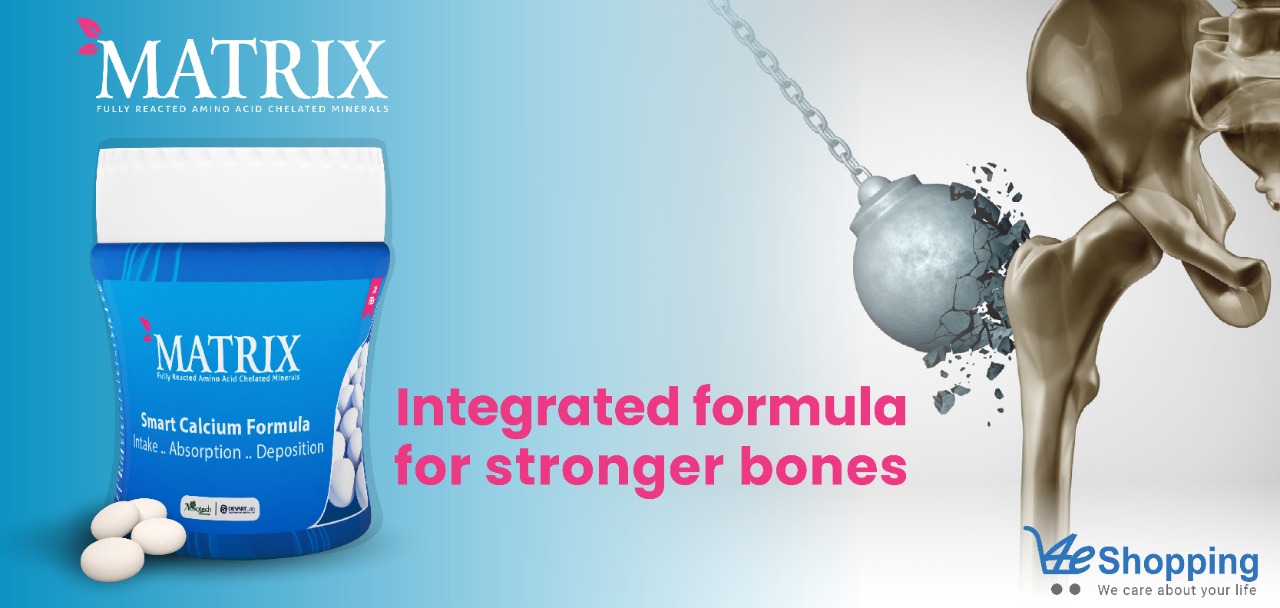
Pharmacist Pioneer Community. Why?
Jul 03 - 2022

Not all vitamins and minerals have the same mechanism of action, as each one of them has specific and distinctive characteristics that affect its effectiveness and degree of importance. There is no doubt that all vitamins and minerals are very important elements for the efficient functioning of the body and its organs to prevent their exposure to health problems, on top of which is vitamin D.
Scientists are so fascinated by the wonders of the ability of vitamin D in the body, that they consider it a hormone, due to its abundance of functions and its extreme importance for the functioning of almost all cells. So it is one of the most important vitamins for the physical and psychological health and its deficiency exposes the body to mighty dangers.
It is called the ‘Sun Vitamin’, found in many dietary and non-dietary sources, so let us get to know it together and know about its types and explore its titanic benefits.
What is vitamin D, and what are its types?
What are the benefits of vitamin D?
What are the sources of vitamin D?
What is the daily requirement of vitamin D?
What are the signs and symptoms of vitamin D deficiency?
What are the causes of vitamin D deficiency?
What is the best nutritional supplement for treating vitamin D deficiency?
When is the best time to take a vitamin D supplement?
Vitamin D is a fat-soluble vitamin, which means that vitamin D that is synthesized and consumed from foods and supplements, is stored in body fat tissues for later use.
Without an adequate amount of vitamin D in the bloodstream, it is impossible to absorb all the calcium that the body needs, so it is a major factor for healthy bones and teeth. Vitamin D also affects cell growth and the efficiency of immune functions, which keeps the body protected against infections and maintains the functioning of the immune system correctly.
Vitamin D is synthesized naturally inside the body, with the direct exposure to the sun’s UVB, the cholesterol particles in the skin are transformed into vitamin D3, which can also be obtained from external sources such as some foods or through nutritional supplements available in all pharmacies. .
Most experts believe that vitamin D3 should be relied upon, as it is the most effective and least toxic in high concentrations, making it the safest type for all age groups.
Many people have several questions related to the importance of vitamin D, and perhaps the most prominent of them is why is it recommended to consume different dietary sources rich in vitamin D?
The answer is that it includes a set of comprehensive health and therapeutic benefits for the total health of the body, and its most important benefits are:
Strong bones are the result of consuming adequate amounts of vitamin D3, because it helps in regulating and controlling the body’s ability to absorb phosphorous and calcium - two compounds that provide density and strength to the bones and teeth, in addition to it working to protect adults from osteoporosis, and children from rickets.
Vitamin D3 reduces the harmful inflammatory response of some white blood cells, while it also enhances the production of immune cells’ proteins that resist microbes, so it is one of the best means of supporting the immune system, especially against COVID-19.
It is one of the most important vitamins that protects the body from diabetes, due to its ability to stimulate the pancreas to produce insulin and effectively manage blood sugar levels to protect the body from hyperglycemia.
Taking vitamin D3 supplements during pregnancy may reduce the risk of preeclampsia, gestational diabetes, low birth weight and severe postpartum bleeding.
Based on the results of some research, vitamin D3 can help prevent breast cancer, as it is an antioxidant that resists free radicals in the body that may cause the activation of cancer cells, In addition to reducing the risk of developing polyps that may lead to colon cancer, and its contribution to slowing down Prostate cancer progression.
In two studies, low levels of vitamin D3 were associated with an increased risk of heart attack. Some researchers believe that vitamin D acts as a 'heart tranquilizer', improving the heart's endurance and preventing the heart muscle from growing too much, which can cause the walls of the ventricles to thicken and block blood flow causing a heart attack.
Doses of vitamin D3 help prevent respiratory diseases, reduce the severity of asthma symptoms, and help recover from tuberculosis as soon as possible, so doctors resort to prescribing high doses of it to help TB patients.
Vitamin D3 plays an important role in regulating mood and treating depression and seasonal depression. In some studies, scientists have found that people with depression who received vitamin D3 supplements notice an improvement in their symptoms, and that their exposure to the sun makes them feel happier.
Vitamin D3 also helps improve mental capacity and accuracy. People who eat foods rich in Vitamin D3 have superior memory and the ability to process information better than those who suffer from Vitamin D3 deficiency. It also helps maintain brain activity sharpness in the elderly.
In one study, people taking calcium and vitamin D3 supplements daily made them able to lose more weight than others because of its effect on suppressing the appetite.
The exposure to fresh and sunny weather, improves children’s vision by supporting the normal eye development and reducing the risk of myopia.
Scientific studies have shown the importance of vitamin D3 for skin health and immunity, as low levels of vitamin D3 have been associated with dry skin, the occurrence of skin diseases such as psoriasis, in addition to delayed wound healing.
Maintaining normal levels of vitamin D3 prevents hair loss and decreased density, as vitamin D deficiency has been associated with hair loss and alopecia areata, which is an autoimmune condition that leads to hair loss, due to the attack of the immune system attacks to the hair follicles.
3. What are the sources of vitamin D?
Vitamin D is found in a few dietary sources:
Fish - such as salmon, sardines, herring, and mackerel.
Red meat.
Liver.
Egg yolk.
Milk and dairy products.
Fortified foods - such as some breakfast cereals.
Sunlight: The strongest source of Vitamin D3. The middle of the day, especially during the summer, is the best time to be exposed to the sun, as the sun is at its highest point and UVB rays are more intense.
The World Health Organizations have determined that the daily need for vitamin D varies according to the person’s age as follows:
|
Age |
Dose (IU) |
|
0-12 months |
400 IU |
|
1-70 years |
600 IU |
|
+70 years |
800 IU |
We have already mentioned the great effect of vitamin D on the health of the body and its vital functions, so its deficiency leads to the emergence of a group of symptoms that vary in severity according to the degree of deficiency, including:
Fatigue and lethargy.
Bone pain.
Osteoporosis or rickets.
Muscle weakness.
Muscle spasms.
Mood changes and depression.
Slow wound healing.
Hair loss.
Weak immunity and high incidence of diseases.
Many factors may lead to insufficient amounts of vitamin D in the body:
Diet: Following a diet, that lacks dietary sources rich in vitamin D.
Sunlight: Lack of exposure to sunlight on a daily basis.
Smoking: It affects the activation process of vitamin D in the body.
Obesity: Excess fat cells hinders the absorption of vitamin D in the body.
Pollution: Pollutant particles in the air can block UVB rays from reaching the skin to activate the vitamin D3 synthesis process.
Kidney and liver diseases: These diseases impede the body's ability to synthesize or convert vitamin D into its active form.
GIT diseases: Inflammation of the intestine and digestive disorders can affect how the intestine absorbs nutrients, including vitamin D.
Medications: Some medications reduce the body's ability to absorb or manufacture vitamin D. These include steroids and some cholesterol-lowering drugs.
D3 Candy
D3 Candy is the best nutraceutical product for the prevention of Vitamin D deficiency; it contains 1000 IU of the most effective form of Vitamin D, which is Vitamin D3, available as delicious chocolate-flavored chewable tablets.
D3 Candy distinguishes itself from other vitamin D supplements:
It contains vitamin D3 and not vitamin D2, as vitamin D3 is 78% more effective than D2 and stays in the blood for a longer period.
It is easy to swallow and tastes delicious, making it an excellent choice for elderly people and people who have trouble swallowing tablets.
It is cost-effective, as the package contains 20 tablets at a price of only 35 pounds.
Available in all pharmacies and pharmacy chains, easy to obtain at any time.
Another type of it for children is available, contains 400 IU of vitamin D3.
It has no side effects.
Some research and reports have shown that early mornings are the best to ingest calcium and vitamin D3 pills together, because vitamin D3 supports and helps the body to absorb calcium from the substances or dietary supplements that were taken in the morning.
Vitamin D supplements should be avoided in the evening due to their association with sleep disturbances and insomnia.
Matrix
Matrix is the best comprehensive source of calcium:
It strengthens the bones, and works to restore their mass and density.
It prevents osteoporosis in adults.
It maintains calcium levels during pregnancy, lactation, and menopause.
It treats and protects against joint pain and muscle spasms.

It contains 11 of the best and most important vitamins and minerals that work together efficiently to make use of calcium as much as possible.
The absorption rate of calcium and all minerals is up to 95%.
The tablet is small and easy to swallow.
It tastes palatable and easy to accept.
It has no side effects.
Safe during pregnancy and lactation.
We recommend taking 1-2 tablets of D3 Candy and Matrix daily for stronger bones and better health.
*This article was written by an integrated medical team affiliated with Devart Lab, the leading company in the field of Nutraceuticals in Egypt and the Middle East (Nutrigenomics and Food Fortification), by providing nutrients that are fortified with minerals and vitamins that the body needs on a daily basis to obtain effective results in the least possible time. By using, the latest pharmaceutical technologies that ensure full absorption without any side effects.